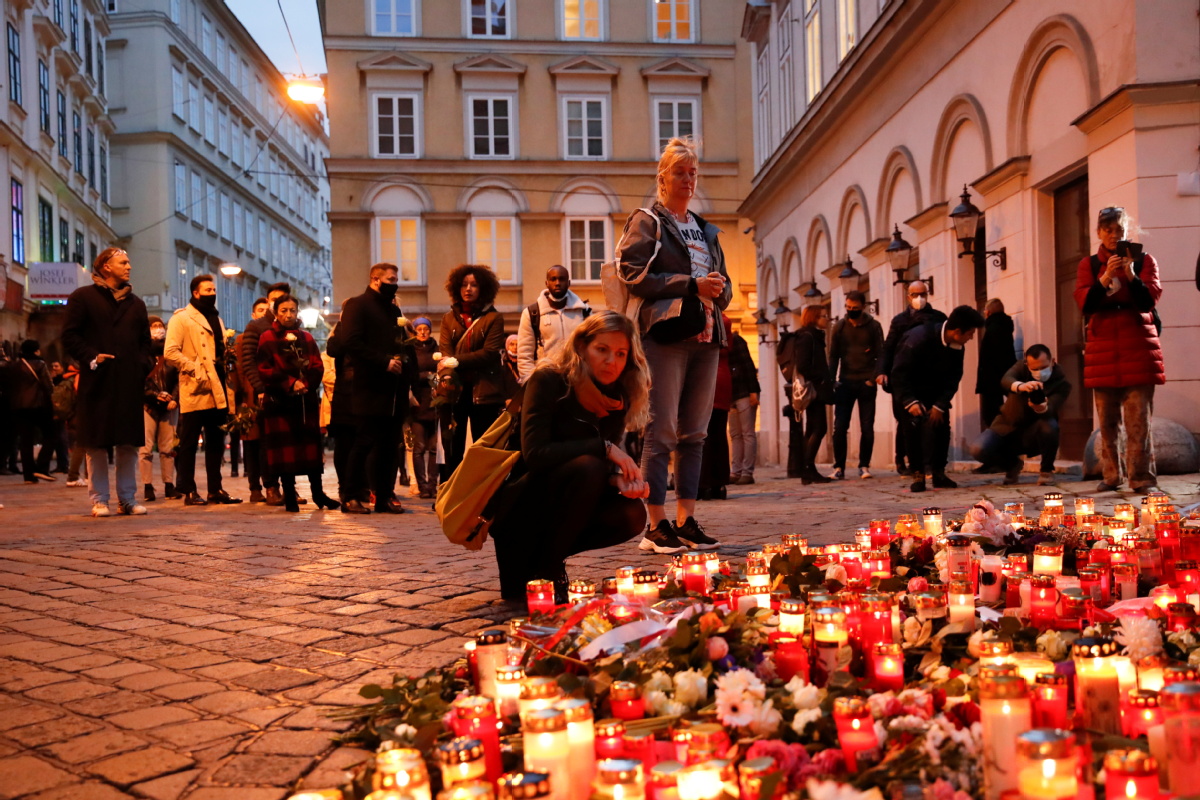Austria admits mistakes over attacker


VIENNA-Austria acknowledged on Wednesday there had been security failings leading up to the deadly gun rampage in Vienna by a convicted sympathizer to the Islamic State.
Interior Minister Karl Nehammer said intelligence services received a warning from neighboring Slovakia that the assailant had tried to buy ammunition, but that "a failure of communication" had followed.
The gunman, identified as 20-year-old dual Austrian-North Macedonian national Kujtim Fejzulai, was killed by police after going on a shooting spree in Vienna on Monday evening that left four people dead.
Police detained 14 people in the wake of the shooting, the first major attack in Austria for decades and the first blamed on an extremist.
They were "aged 18 to 28, from minority communities and some aren't Austrian citizens", the interior minister said.
Police said "it's possible they supported" the gunman but their exact role remains unclear.
The authorities now say Fejzulai acted alone after initial fears more assailants could be at large.
Fejzulai had been convicted and sentenced to 22 months in prison in April last year for trying to travel to Syria and join the Islamic State terror group.
But he was released on probation in December and had been referred to organizations specializing in deradicalization programs.
The IS-which has claimed many attacks in Europe-said on Tuesday a "soldier of the caliphate" was responsible for the shooting.
Tightened security
The gunman opened fire indiscriminately in the historic center of the city just hours before Austria imposed a coronavirus lockdown, when people were out in bars and restaurants enjoying a final night of relative freedom.
Security has been tightened in the city. Flowers and candles were laid out at the scene of the attack, where chalk circles drawn on the ground by investigators to mark out shell casings were still visible.
But life was returning to normal-albeit under the new virus restrictions.
"We were scared by this terrorist act of course, but the city remains safe," said architect Peter Mensdorff Pouilly. "We are not going to be brought down by terrorism."
Nehammer, in commenting on the warnings from Slovakia, said: "In the next steps there was clearly a failure of communication."
He accused his far-right predecessor Herbert Kickl of being responsible for failings in the way the BVT operates as a result of his one-and-a-half years in office until May 2019.
Nehammer said he wanted a commission set up to look at the functioning of the intelligence agencies.
Chancellor Sebastian Kurz has described the decision to release Fejzulai as "definitely wrong".
"If he had not been released then the terror attack would not have been possible," Kurz told public broadcaster ORF on Tuesday.
Agencies via Xinhua

































